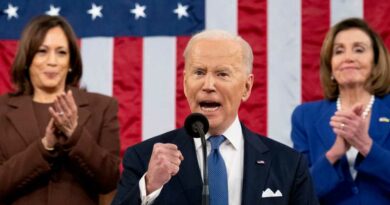Over 5 million Americans could soon be eligible for Covid vaccine booster shots.
More than five million Americans could be eligible for booster shots of the Covid-19 vaccine by late September under the Biden administration’s plan to combat the Delta variant of the virus by giving extra doses eight months after initial vaccinations.
But the plan depends on several crucial steps taking place in the coming weeks. Most important, the Food and Drug Administration would need to decide that third shots are safe and effective for Pfizer-BioNTech and Moderna, the two vaccines that were rolled out first and have been most used.
Pfizer is farther along in submitting data to the F.D.A. that it says supports the use of boosters. Moderna and the National Institutes of Health are still studying whether a half-dose or a full dose would work better for a third shot but expects results soon. Moderna’s chief executive, Stephane Bancel, has said the firm plans to submit its data to the F.D.A. in September.
Administration officials are to announce the strategy at a White House briefing on Wednesday. Nursing home residents, health care workers and emergency workers would probably be first in line, as they were with the initial shots. Other older people would be next, followed by the rest of the general population.
Officials envision giving people the same vaccine they originally received, and using pharmacies as key distribution points.
Administration officials are discouraging people from seeking booster doses on their own, noting that the F.D.A. has yet to rule on their safety and efficacy. They hope to roll out extra shots in an orderly way so people get a booster shot when it is recommended, not simply based on their own fears.
Dr. Danny Avula, the vaccine coordinator for the state of Virginia, said his state has thousands of vaccine providers already in place and can likely manage boosters with much change. “What caused so much of the urgency and frenzy of January through April was the limitations in supply,” he said.
Now, the government has more than 100 million doses stockpiled that could be used for boosters, along with tens of millions more doses that have already been delivered to pharmacies and other locations. Still more supply is scheduled for delivery this fall.
In interviews on Tuesday, hospital officials and doctors were generally supportive of the push for booster shots.
“I think we’re running out of second chances,” said Dr. Matthew Harris, the medical director of the coronavirus vaccination program at Northwell Health, New York’s largest hospital system. “What keeps me up at night is the inevitability of a variant that is not responsive to the vaccine, so if this is how we stay ahead of it, I fully support it.”
Understand the State of Vaccine and Mask Mandates in the U.S.
- Mask rules. The Centers for Disease Control and Prevention in July recommended that all Americans, regardless of vaccination status, wear masks in indoor public places within areas experiencing outbreaks, a reversal of the guidance it offered in May. See where the C.D.C. guidance would apply, and where states have instituted their own mask policies. The battle over masks has become contentious in some states, with some local leaders defying state bans.
- Vaccine rules . . . and businesses. Private companies are increasingly mandating coronavirus vaccines for employees, with varying approaches. Such mandates are legally allowed and have been upheld in court challenges.
- College and universities. More than 400 colleges and universities are requiring students to be vaccinated against Covid-19. Almost all are in states that voted for President Biden.
- Schools. On Aug. 11, California announced that it would require teachers and staff of both public and private schools to be vaccinated or face regular testing, the first state in the nation to do so. A survey released in August found that many American parents of school-age children are opposed to mandated vaccines for students, but were more supportive of mask mandates for students, teachers and staff members who do not have their shots.
- Hospitals and medical centers. Many hospitals and major health systems are requiring employees to get a Covid-19 vaccine, citing rising caseloads fueled by the Delta variant and stubbornly low vaccination rates in their communities, even within their work force.
- New York. On Aug. 3, Mayor Bill de Blasio of New York announced that proof of vaccination would be required of workers and customers for indoor dining, gyms, performances and other indoor situations, becoming the first U.S. city to require vaccines for a broad range of activities. City hospital workers must also get a vaccine or be subjected to weekly testing. Similar rules are in place for New York State employees.
- At the federal level. The Pentagon announced that it would seek to make coronavirus vaccinations mandatory for the country’s 1.3 million active-duty troops “no later” than the middle of September. President Biden announced that all civilian federal employees would have to be vaccinated against the coronavirus or submit to regular testing, social distancing, mask requirements and restrictions on most travel.
Source: Read Full Article


